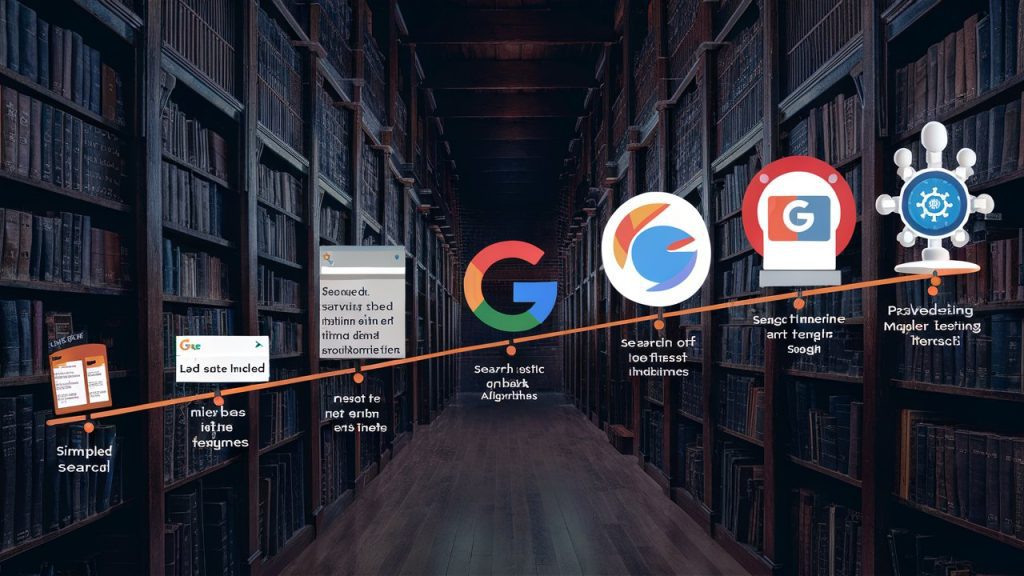In the fast-paced world of digital marketing, search engine optimization (SEO) continues to be a pivotal factor in determining online visibility and business success. As we venture into 2024, businesses must adopt advanced strategies to remain competitive. This article explores the top SEO strategies you should focus on to stay ahead of the curve. Explore more about our company on [our homepage].
Understanding the evolution of the search engine landscape

Search engines are becoming increasingly sophisticated, leveraging artificial intelligence (AI) to deliver better search results. Algorithms prioritize content that satisfies user intent, meaning businesses must align their strategies with these changes. In 2024, the focus will be on understanding search engine updates, like Google’s core updates, and how they impact ranking.
Moreover, search engines are giving more weight to E-E-A-T (Experience, Expertise, Authority, Trustworthiness). Websites that consistently provide valuable, well-researched content gain higher rankings. Staying informed about these trends is no longer optional but necessary for success.
Focus on user experience (UX)

User experience is central to modern SEO. Search engines now evaluate metrics such as page load speed, mobile responsiveness, and ease of navigation. Websites that offer seamless UX tend to rank higher in search results.
Improving UX involves reducing page load times through techniques like image optimization and implementing responsive design principles to ensure usability across devices. Enhancing UX not only helps SEO but also keeps visitors engaged, reducing bounce rates and increasing conversions.
High-Quality, Relevant Content

Content remains king in 2024, but it’s not just about quantity. Search engines prioritize content that is in-depth, relevant, and provides value to readers. Long-form content that addresses specific queries and includes actionable insights is especially effective.
Additionally, incorporating keyword variations naturally within your content helps improve visibility. Use tools like Google’s Keyword Planner or SEMrush to identify trending topics and keywords. Regular updates to existing content also signal to search engines that your site remains current and authoritative.
Leveraging AI and Machine Learning

AI-driven tools like ChatGPT and Jasper can help optimize content creation and keyword analysis. These tools analyze trends, suggest improvements, and streamline workflows. Machine learning algorithms in search engines also identify patterns in user behavior, meaning your content should cater to evolving user preferences. Furthermore, personalization powered by AI can enhance user engagement. For instance, dynamic content that adapts to individual user needs can improve dwell time and boost rankings.
Optimized for voice search

Voice search is growing rapidly as more people use smart speakers and virtual assistants. Optimizing for voice search involves targeting long-tail keywords and conversational phrases that mimic natural speech. Ensure your content answers direct questions succinctly. Creating an FAQ section on your website can be particularly beneficial for capturing voice search traffic. Remember, voice search queries are often local, so optimizing for local SEO is equally important.
Embrace Video Content

Videos are dominating digital marketing, and they play a crucial role in SEO. Platforms like YouTube serve as powerful search engines themselves, offering significant opportunities for visibility. Optimize your video titles, descriptions, and tags with relevant keywords. Embedding videos in blog posts can also enhance user engagement metrics, such as time-on-page, which are valuable for SEO rankings.
Build Quality Backlinks

Backlinks remain one of the most influential ranking factors. Quality matters more than quantity; links from authoritative and relevant websites signal trustworthiness to search engines. Focus on earning backlinks through guest blogging, partnerships, and creating shareable content. Tools like Ahrefs can help identify link-building opportunities and monitor your backlink profile.
Utilize Social Media

While social media signals are not direct ranking factors, their influence on SEO cannot be overlooked. Social platforms drive traffic to your site and increase content visibility. Consistently share your blog posts, videos, and infographics on platforms where your audience is active. Engagement metrics, such as shares and comments, indirectly contribute to your site’s authority and rankings.
Technical SEO

Technical SEO ensures that search engines can efficiently crawl and index your website. Key aspects include optimizing site structure, creating XML sitemaps, and using schema markup. Additionally, implementing HTTPS for secure connections and reducing server response times are vital for a strong technical SEO foundation. Regular audits using tools like Screaming Frog or Google Search Console help identify and fix issues promptly.
End up leading alongside uninterrupted study
SEO is an ever-evolving field. Staying updated on trends and continuously testing new strategies is crucial. Attend webinars, read industry blogs, and participate in forums to stay ahead of competitors. Encourage your team to adopt a growth mindset, where learning and experimentation drive innovation. This proactive approach ensures that your SEO efforts remain effective in the long term.
Continually be curious, constantly reworked, alongside constant improvement. Happy ranking!

